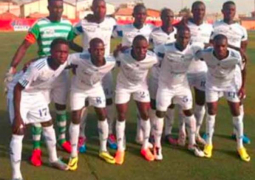This year’s main theme was: ‘Let Journalism Thrive!’ The other areas of concern this year are the quality of reporting, gender equality and media safety in the digital age.
It is important that on this day we reaffirm the principles of independence of the media, and to take stock of threats to journalists and their profession, including paying tribute to those who have been killed or injured for simply doing their job.
Yesterday, the Gambia Press Union joined the world in marking this important day at a time when a dark cloud looms over the media landscape in the country.
Indeed, the free space in which journalists have been operating appears to be shrinking fast.This is despite the increase in the number of media houses operating in the country.
The broad perception of shrinking freedom is informed by various attempts to pass laws to control the media.
The latest was the amendment to the Information Communication Act in 2013 that prescribed a 15-year jail term or a fine of D3 million or both the fine and imprisonment for “spreading false news” against the government or its public officials on the internet.
What was even worrying about this is that the amendment was spearheaded by someone who is considered to be part of the media fraternity.
It is important that the media is viewed not as an enemy, but as a partner in development, so that we work together for the development of our nation and humanity.
Media freedom is a key pillar in any democracy; hence as long as The Gambia continues on the democratic path, the right of journalists to do their job should be jealously protected.
World Press Freedom Day is a perfect opportunity for the government and the media to reflect on the past year in order to improve their relationship.
The Gambia should never join the league of countries that do not uphold the freedom of the media.
“When the public’s right to know is threatened, and when the rights of free speech and free press are at risk, all of the other liberties we hold dear are endangered.”
Christopher Dodd
Read Other Articles In Article (Archive)
Imam Touray Calls on People to Consider the Poor
Sep 4, 2008, 5:55 AM


